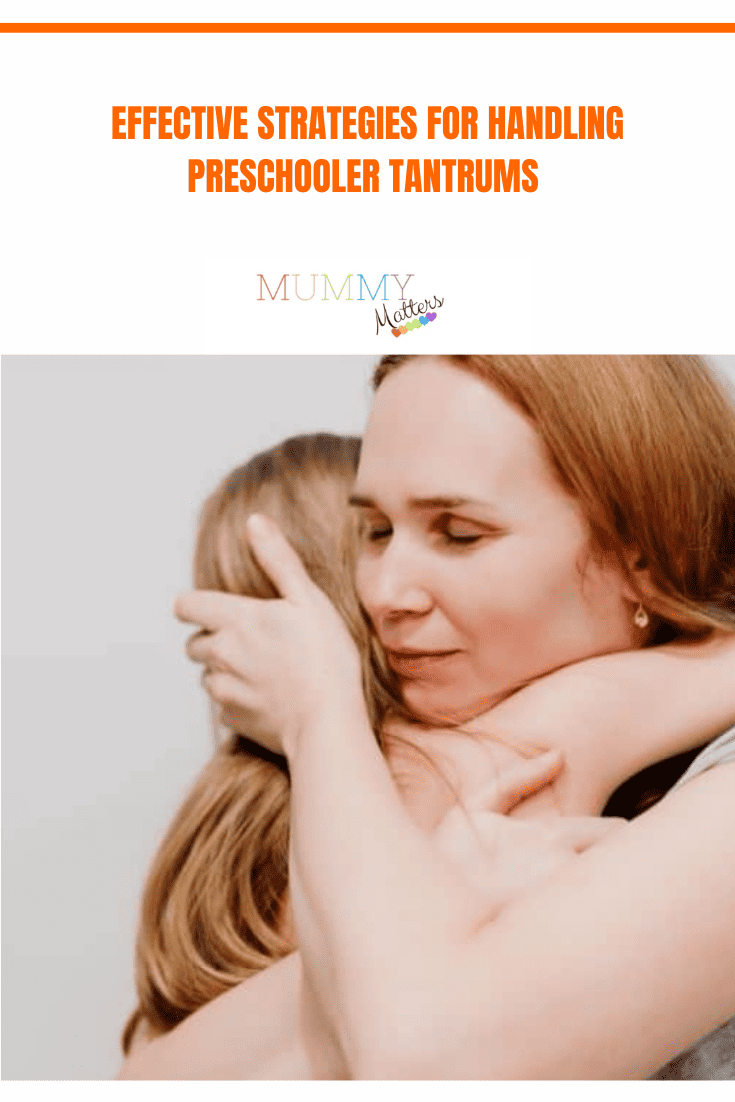No parent likes when their child throws tantrums, yet this is common, especially with preschoolers. To deal with them effectively, we must first understand tantrums and why they happen. Simply put, a tantrum is a child’s reaction to something upsetting. Children respond differently to such situations than adults, probably because they don’t know how to react. Keep reading to learn more about effective strategies for handling preschooler tantrums.
We will start by explaining what tantrums are and what they happen. Also, we will mention some ways to make them less likely to happen. These include paying attention to your child, giving them some control and helping them learn new skills successfully. Responding to tantrums involves handling aggressive behaviour right away, trying not to yell and trying to distract your child. Finally, we will discuss the importance of modelling a calm demeanour.
What are tantrums
Tantrums involve specific sets of behaviours as a response to diverse situations. They are usually displayed as outbursts of anger, rage and dramatic behaviour. Kids often scream, cry, fall down, kick, stiffen their limbs or run away, among other things. Sometimes, kids even hold their breath, throw up, break something or hurt themselves. Tantrums can be serious and a real problem. If parents notice tantrums happening frequently with their children, they should immediately take action to resolve them and prevent them from happening. This is important not only for life generally but also for attending preschool. Quality preschools, such as Insight Early Learning, model particular behaviours, and kids should act accordingly.
Why they happen
Now that we know what tantrums are, we can explain why they happen. Most commonly, tantrums happen with kids aged 1 to 3, but they can also happen with older children. The main reasons why tantrums happen with young children are because they are still developing socially, emotionally and language-wise. They can’t always communicate their needs and feelings, which makes it frustrating. They are yet to learn that their behaviours affect others. We can view tantrums as ways toddlers express and manage their feelings. Tantrums sometimes happen as a result of character and sometimes due to kids being hungry, under pressure, tired or overstimulated.
How to make them less likely to happen
We, as parents, can learn how to make tantrums less likely to happen. Three ways to do that include paying attention to your child, giving your kids some control and helping them learn new skills successfully.
Pay attention to your child
One of the sure ways to prevent tantrums from happening is to give your children plenty of attention. That means watching your children and noticing the good things they do. You should reward them with praise. Be specific when praising them by mentioning particular behaviours such as waiting patiently, saying please and thank you, etc. Kids feel perfect when their parents notice these things.
Give your kids some control (over little things)
Another thing you can do is give your kids some control over little things. You should do that by offering them minor choices such as the type of juice they want to drink, brushing their teeth before or after taking a bath and so on. In that way, they feel more in control, and you are less likely to get a ‘no’ as a response. You can do this in any situation where choice doesn’t make any (big) difference. Some of these choices will be a perfect opportunity for practising independence and self-expression.
Help them learn new skills successfully
One more efficient way to make tantrums less likely to happen involves helping your children learn new skills successfully. Kids yearn for help and guidance, so be there when needed. Teach them how to do things, and don’t let them give up easily. These are essential life skills kids need to learn at an early age. Praise them along the way and make them feel proud of themselves when they learn a skill. Remember to start with simple things before moving to more challenging ones.
How to respond to tantrums

When responding to tantrums, it can be challenging for parents. They must be handled correctly to prevent escalating and creating a permanent problem. This means that aggressive behaviour needs to be handled right away. It also means that parents should refrain from yelling, and they should instead try to distract children as a way of calming them.
Handle aggressive behaviour right away
Aggressive behaviour can be dangerous, so we should handle it right away. Sometimes, kids, during meltdowns, try to hurt themselves or others. In such cases, you should immediately react and remove the child from the situation. You should clarify that negative feelings are okay, but hurting themselves or others is not. The key is remaining calm and firm. A zero-tolerance policy is the best way to go regarding aggressive behaviour.
Try not to yell and have an angry outburst
This is easier said than done, but parents should refrain from yelling and having an angry outburst in toddler tantrums. The reason for this is the fact that children will copy your behaviour. So, if you yell at them, they will yell back to match with you. You should focus on the fact that they are feeling frustrated – such a view can help you stay calm.
Try to distract them
Another way to handle tantrums is to distract kids from the situation. As children have short attention spans, diverting them shouldn’t be difficult. Think of something that is present, and that would be great for switching attention to.
The importance of modelling calm behaviour
Modelling calm behaviour is of quintessential importance. As we already mentioned, kids imitate their parents. They cannot learn to be calm if they don’t see their parents acting calm in various situations. You need to be calm and clear when talking to your child about your expectations regarding their behaviour.
We should always remember that as parents, we have more knowledge and experience than children. We should use that to our advantage to solve any potential problem by carefully thinking through it.


